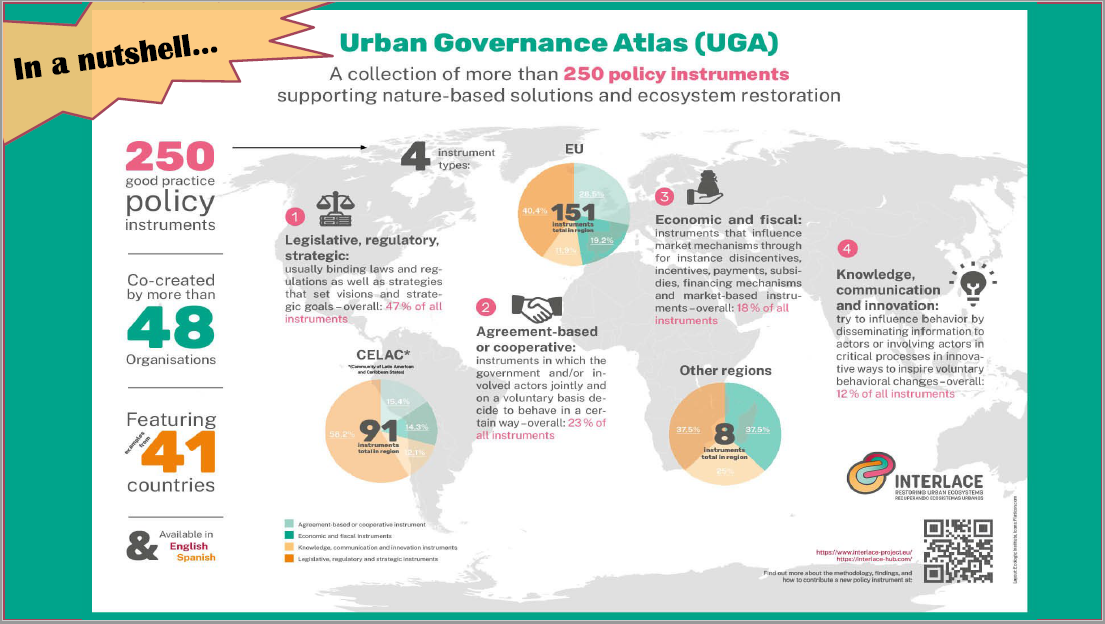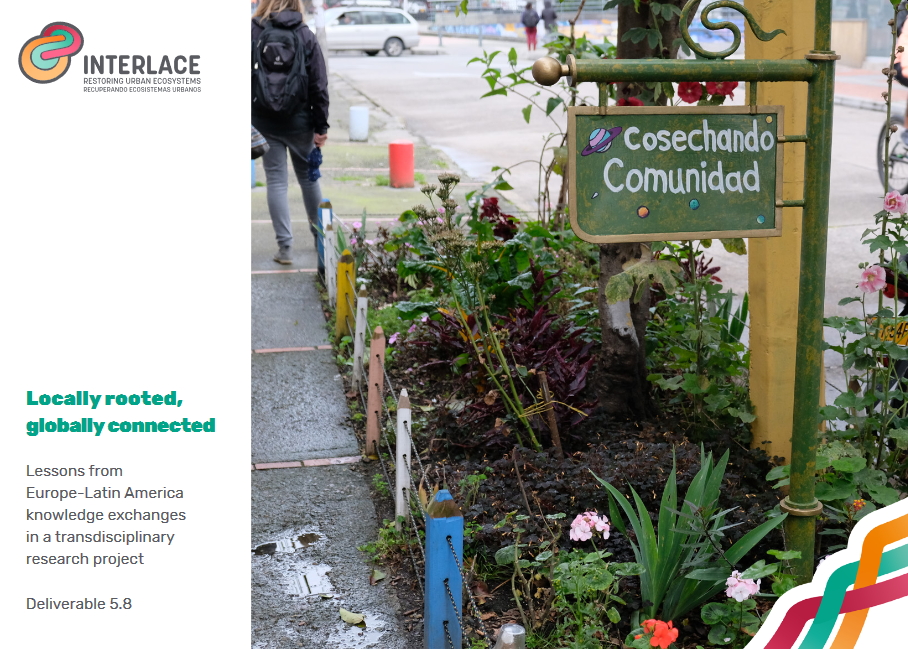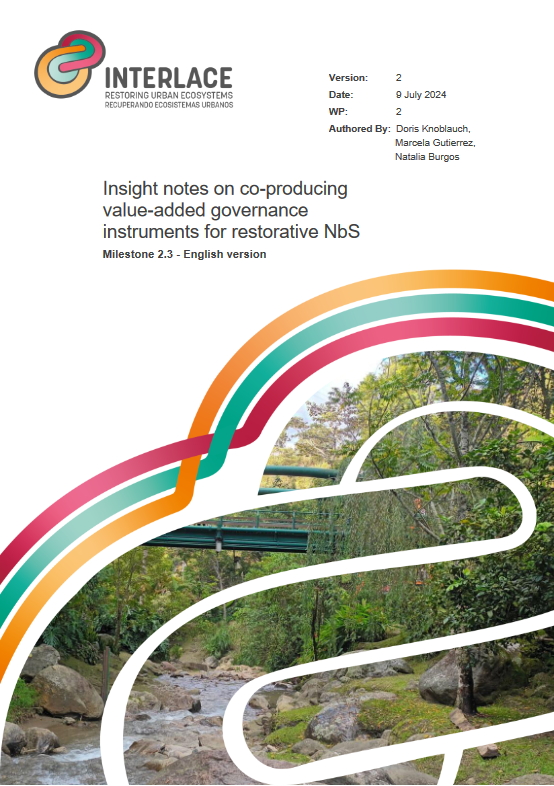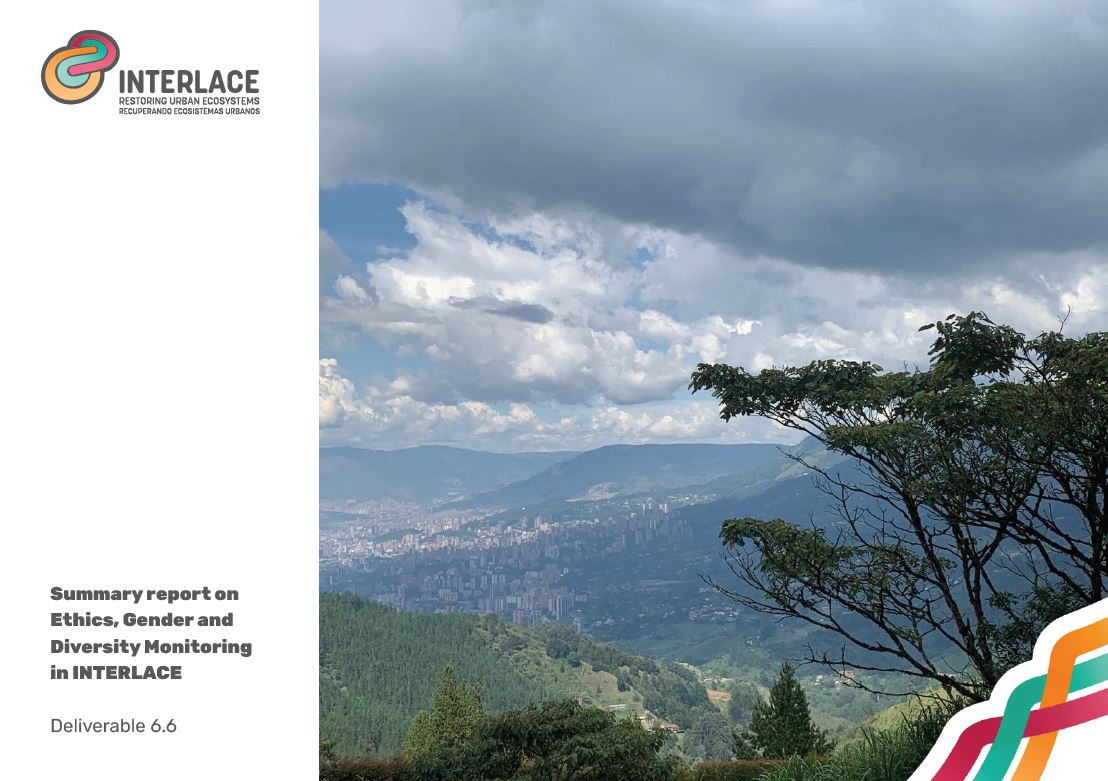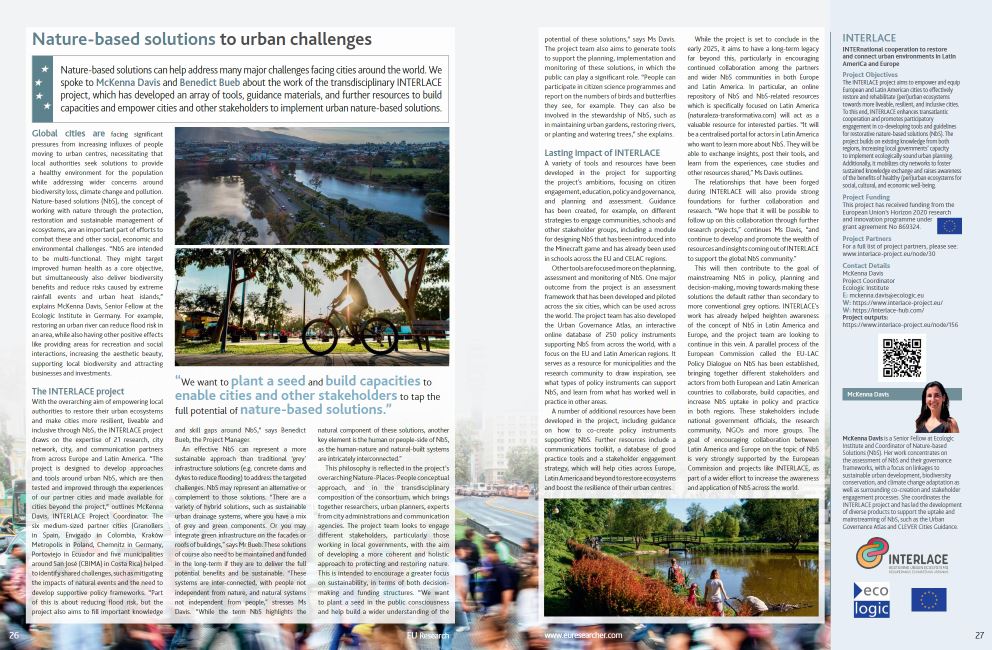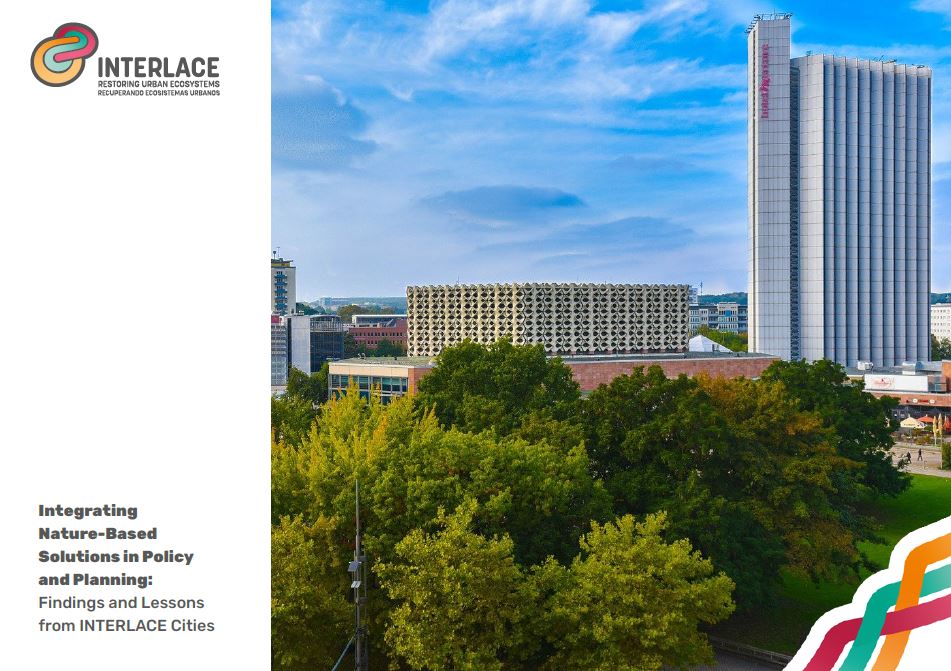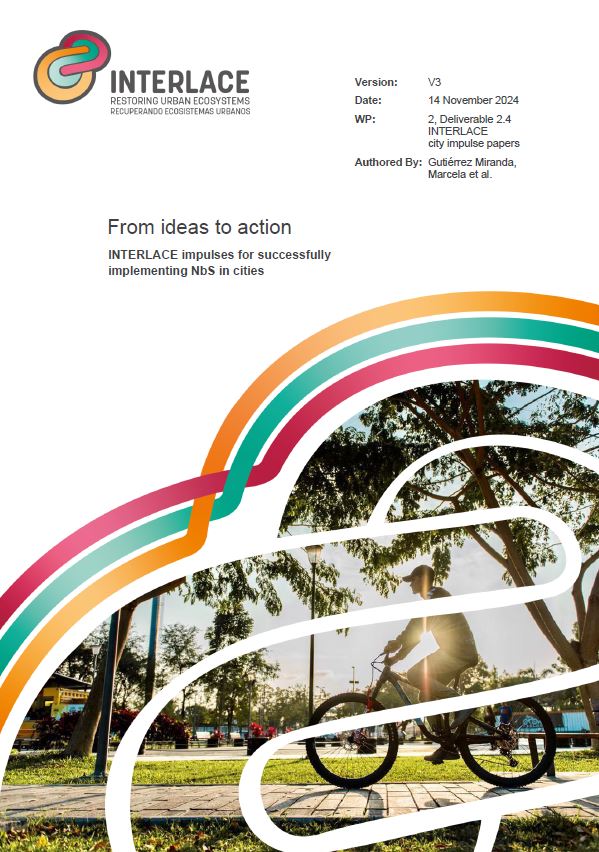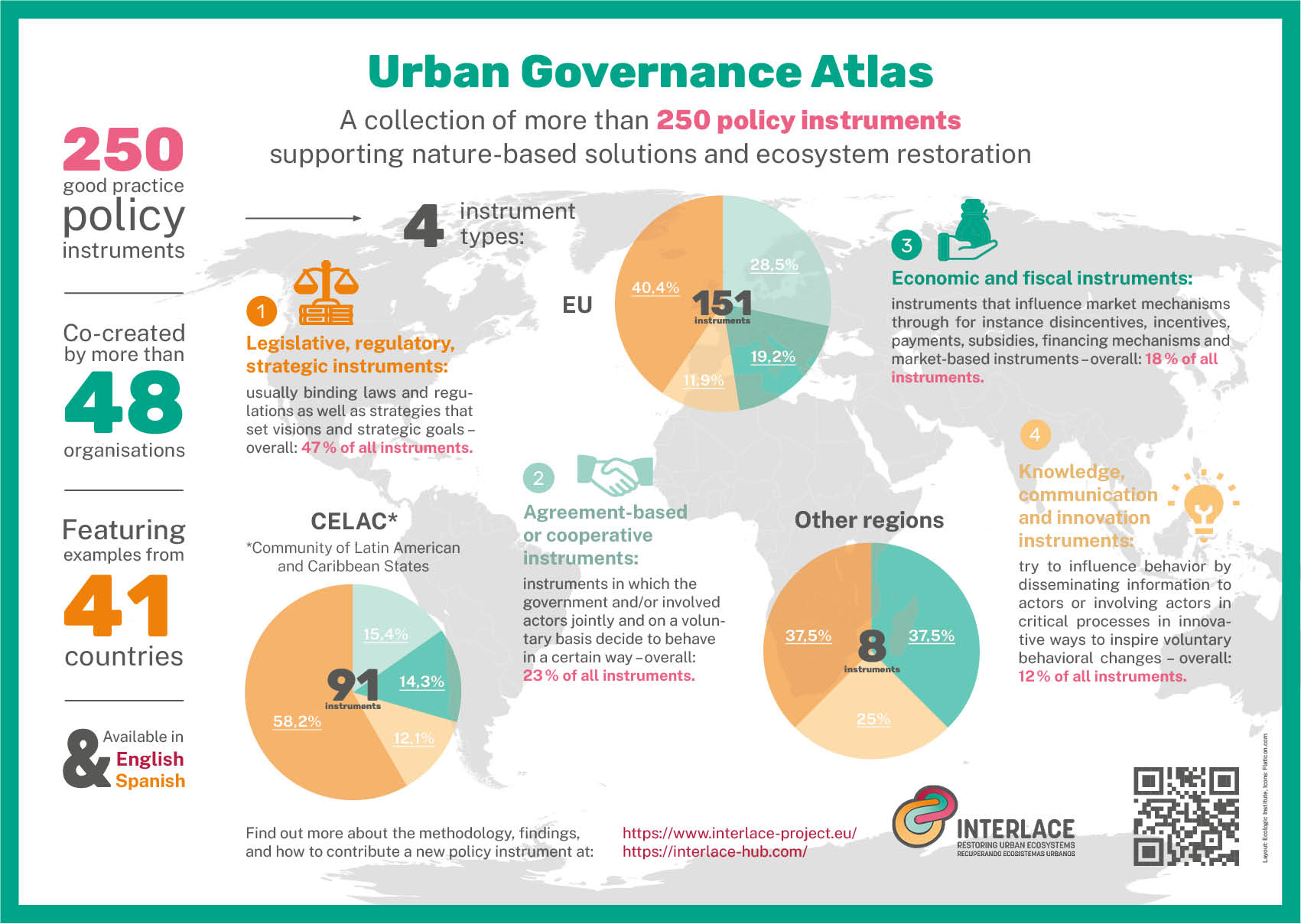Digital Tools for Urban Climate Adaptation
- Presentation
- Date
-
- Location
- online
- Speech
-
Natalia Burgos Cuevas
As cities across Europe face increasing pressure from climate risks such as heatwaves and flooding, digital platforms are becoming key enablers of effective and inclusive adaptation planning. The Adaptation AGORA webinar, hosted by Stockholm Environment Institute, brought together over 100 participants to explore three leading platforms that support nature-based solutions (NbS) in urban contexts.
Natalia Burgos Cuevas, Fellow at Ecologic Institute, presented the Urban Governance Atlas – an interactive online database of over 250 policy instruments that support NbS and ecosystem restoration across Europe, Latin America, and beyond. Developed by Ecologic Institute under the Horizon 2020 project INTERLACE, the Atlas is designed for policymakers, urban planners, researchers, and civil society. It offers structured access to governance tools that address urban challenges such as heat, flooding, and biodiversity loss.
The Atlas enables users to explore good practice examples by policy instrument type (legislative, economic, cooperative, and knowledge-based), geographic scope, and policy objective. It also highlights how local governance arrangements influence the implementation and success of NbS, and serves as a reference for cities seeking tested, transferable models for NbS uptake.
The session also featured presentations of AdaptaVille (Agence Parisienne du Climat) and Plus Fraîche Ma Ville (ADEME), showcasing regionally tailored platforms for NbS planning, stakeholder engagement, and urban cooling strategies. A panel discussion explored opportunities for collaboration, the importance of multilingual tools, and the need for accessible, evidence-based guidance—especially in cities with limited capacity.
